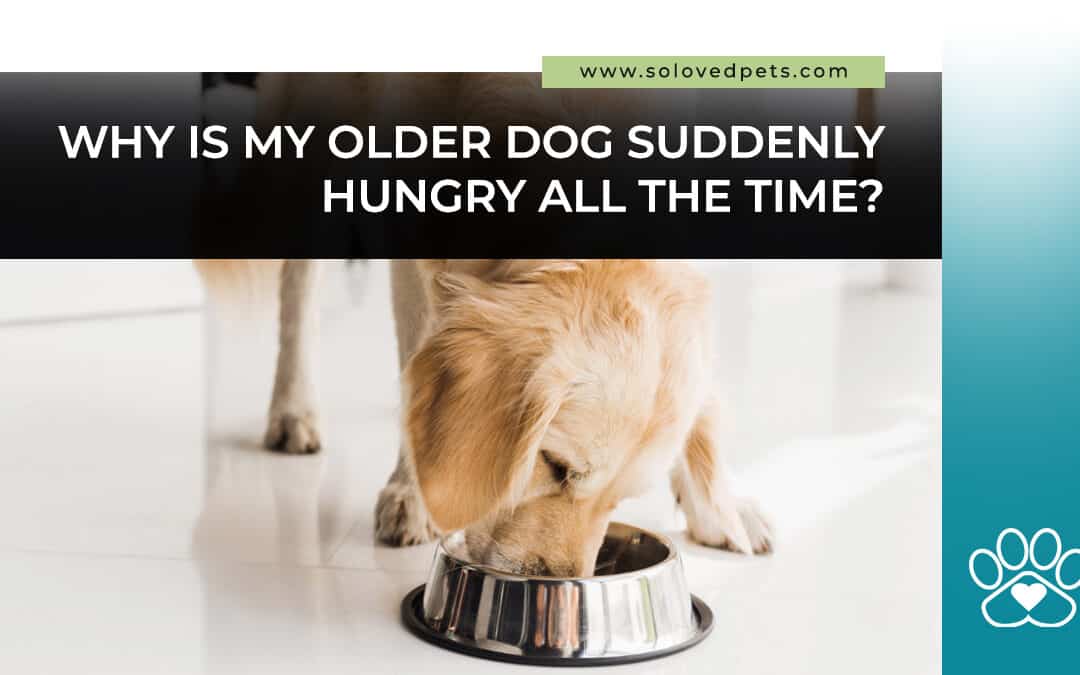It’s tough when you notice something out of the ordinary with your older dog, especially when their behavior shifts unexpectedly. A sudden increase in appetite can leave you wondering if something deeper is going on. So if you’re searching, “older dog suddenly hungry all the time,” it’s a natural reaction to your care and concern for your pet.
When a dog you’ve known for years suddenly seems insatiable, it’s natural to worry. Changes in eating habits can be tied to age, but they can also point to specific health needs or underlying issues.
Together, let’s look at what might be causing your senior dog’s newfound hunger and how you can support their health during this new phase.
Senior Dogs and Normal Reasons for Increased Appetite
When you first notice your older dog suddenly hungry all the time, it can seem like something’s changed overnight. A senior dog’s appetite can shift for various reasons, some of which are completely normal and simply part of the aging process.
Let’s take a closer look at why many older dogs may naturally want to eat more and what’s happening behind that increased appetite.
Changes in Metabolism and Energy Needs
As dogs age, their metabolism often slows, yet some older dogs may burn calories differently. While some senior dogs become less active and need fewer calories, others might need more food to maintain a healthy weight.
If your pet still has bursts of energy or spends more time moving around the house or yard, they might feel hungrier because of the increased calorie burn. This change in metabolism and energy needs can lead to more frequent requests for food.
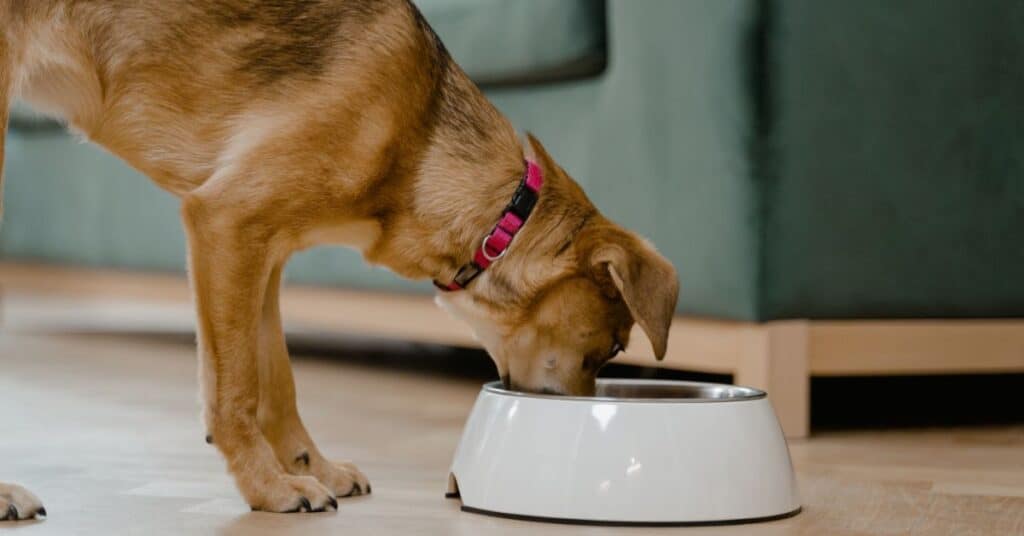
Adjusted Meal Times and Appetite Patterns
In older dogs, meal routines can become essential for comfort and stability. If you’ve noticed constant hunger, it could simply be that their body is now accustomed to eating at specific times.
Dogs thrive on routines, and as they age, they may become more sensitive to slight adjustments in their feeding schedule. For instance, if you’ve changed meal times or introduced smaller portions, your dog might appear excessively hungry because they’re not yet used to the new routine.
Dietary Adjustments and Nutrient Absorption
Older dogs sometimes experience shifts in how their body absorbs nutrients, which can influence their hunger levels. Certain foods may no longer provide the same satisfaction or nutrition as they did before, leading to your dog eating more to feel full.
Adjustments to your dog’s diet, like introducing more nutrient-dense foods or adding dietary fiber, can help them feel fuller for longer without overloading their system. Many dogs benefit from these slight changes, which may reduce that sudden increase in appetite.

Emotional Factors and Begging Behavior
Sometimes, the increased appetite you notice is more about emotional needs than actual hunger. Many older dogs start to show behaviors that seem like excessive hunger, like begging or waiting by the food bowl, as a way to gain extra attention from their family members.
This can be especially common if there’s a new pet in the household or if your dog feels changes in the home environment. Dogs are creatures of habit and comfort, so they may turn to begging if they sense stress or simply want more interaction.
This learned behavior may not indicate real hunger but rather a need for companionship or comfort.
Adjusting to the Signs of Aging
It’s also essential to recognize that aging brings natural changes in appetite. Like people, dogs’ tastes and tolerance levels can shift over time.
Some dogs might seem to literally eat more because they’re adapting to new ways their body processes food, or they may find comfort in eating as they age. As their caregiver, monitoring these signs and adjusting to your dog’s unique needs will help them stay healthy and comfortable.
These normal, age-related reasons often explain why older dogs appear to have an insatiable appetite. However, if you’re unsure or if their appetite seems unusually intense, it’s always wise to check in with a veterinarian to rule out underlying health issues.
Health Concerns Related to Appetite As Dogs Age
While some increased appetite in senior dogs is normal, a sudden, intense hunger can signal underlying health issues that deserve attention. Certain health conditions are common in older dogs, and catching these signs early can make a big difference in managing their well-being.
Let’s explore some of the possible health-related causes behind a senior dog’s heightened appetite.
Diabetes Mellitus and Its Impact on Appetite
Diabetes mellitus is a common issue in middle-aged and senior dogs that can lead to increased appetite. When a dog has diabetes, their body struggles to regulate blood sugar, causing a range of symptoms, including excessive hunger.
If your dog eats more but continues to lose weight or shows signs of thirst and frequent urination, diabetes could be at play. Your vet may recommend daily insulin injections to help stabilize their blood sugar levels, along with specific dietary changes to support their health.
Monitoring their food intake and keeping up with vet visits is key to helping a diabetic dog stay healthy.
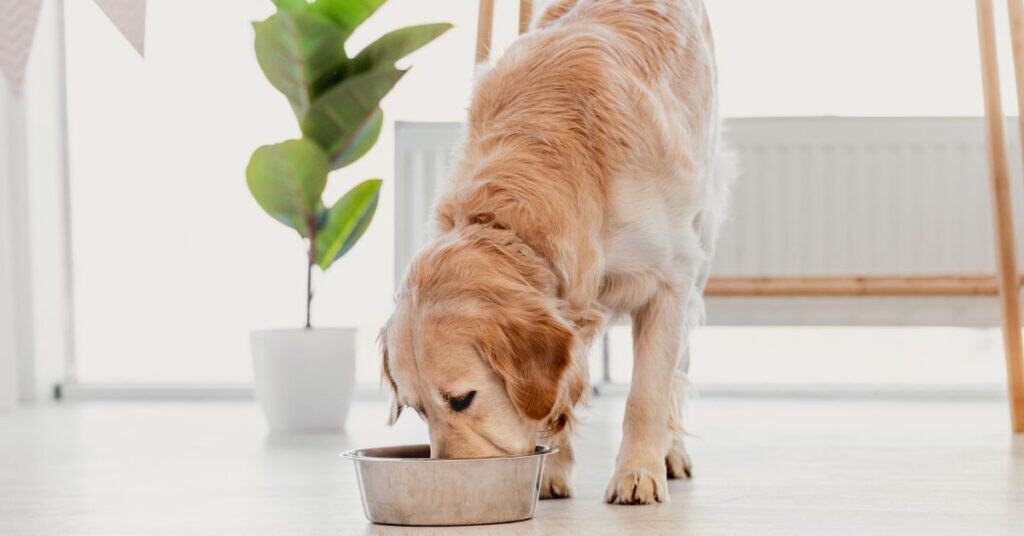
Losing a pet is never easy, and you’re not alone if you’re on this journey. Our team is here to provide the guidance and empathy you need to make these decisions with peace of mind. We handle every detail respectfully so you can focus on honoring your pet’s legacy.
Contact So Loved Pets today to learn more about our pet cremation services or to begin planning. We’re here for you every step of the way.
Cushing’s Disease and Appetite Changes
Cushing’s disease, or hyperadrenocorticism, is another condition that commonly affects older dogs. This disorder occurs when a dog’s adrenal glands produce too much cortisol, which can lead to an increase in appetite.
Alongside constant hunger, dogs with Cushing’s may display symptoms like:
- Increased thirst
- Frequent urination
- Weight gain
To diagnose Cushing’s disease, vets often perform a dexamethasone suppression test and a review of the dog’s medical history. Treatment may involve medications or, in some cases, radiation treatments. Addressing this condition can help bring their appetite back to a manageable level.
Exocrine Pancreatic Insufficiency and Digestion Issues
Exocrine pancreatic insufficiency (EPI) occurs when a dog’s pancreas doesn’t produce enough enzymes to digest food properly. This condition leads to malabsorption, meaning your dog may feel hungry constantly because they aren’t getting enough nutrients from their food.
Dogs with EPI often experience gastrointestinal issues like:
- Loose stools
- Weight loss
- Insatiable appetite
A blood test can help confirm this diagnosis, and the condition is typically managed through enzyme supplements and adjustments to the dog’s diet. Once managed, many dogs with EPI can lead a normal, healthy life with a controlled appetite.
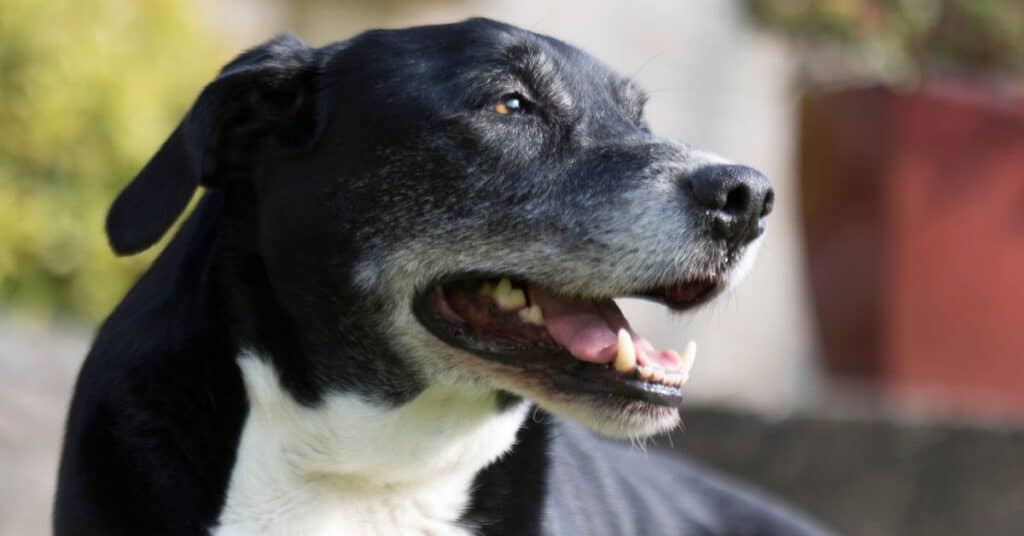
Parasites and Other Gastrointestinal Concerns
Intestinal parasites, while more common in younger dogs, can also affect senior pets. Parasites such as roundworms and hookworms can interfere with nutrient absorption, leading to excessive hunger.
If you suspect parasites, a vet can perform stool tests to check for these invaders. Deworming medication can treat the condition, helping your dog’s appetite return to normal.
Gastrointestinal issues, such as inflammation or infections, can also cause appetite changes. In such cases, your dog may benefit from a treatment plan that includes medication and dietary adjustments to relieve discomfort and manage hunger levels.
Cancer and Appetite Fluctuations
While cancer is a serious diagnosis, it’s unfortunately common among older dogs. Certain types of cancer can lead to changes in metabolism, causing increased hunger as the dog’s body demands more energy. Signs of cancer can include:
- Excessive appetite
- Weight loss
- Unexplained changes in your dog’s behavior
Regular physical examinations and blood tests can help detect cancer early. Treatment options depend on the type and stage of cancer and might include surgery, chemotherapy, or radiation treatments, each designed to support a better quality of life.
Stress, Learned Behavior, and Other Contributing Factors
Health concerns aren’t always physical. If your older dog seems hungry all the time but doesn’t show signs of illness, stress or learned behaviors may be factors.
Dogs under stress can develop compulsive behaviors around food, especially if they associate food with comfort or attention. A vet may recommend dietary changes, adjusted feeding routines, or gentle behavior training to manage this type of excessive appetite.
If you’re dealing with a dog’s appetite that seems unusual or suddenly increased, it’s essential to work with your veterinarian. A complete review of your dog’s medical history, along with specific blood tests or physical exams, can help pinpoint the underlying cause. By addressing these health concerns early, you can support a balanced, healthy life for your senior dog.
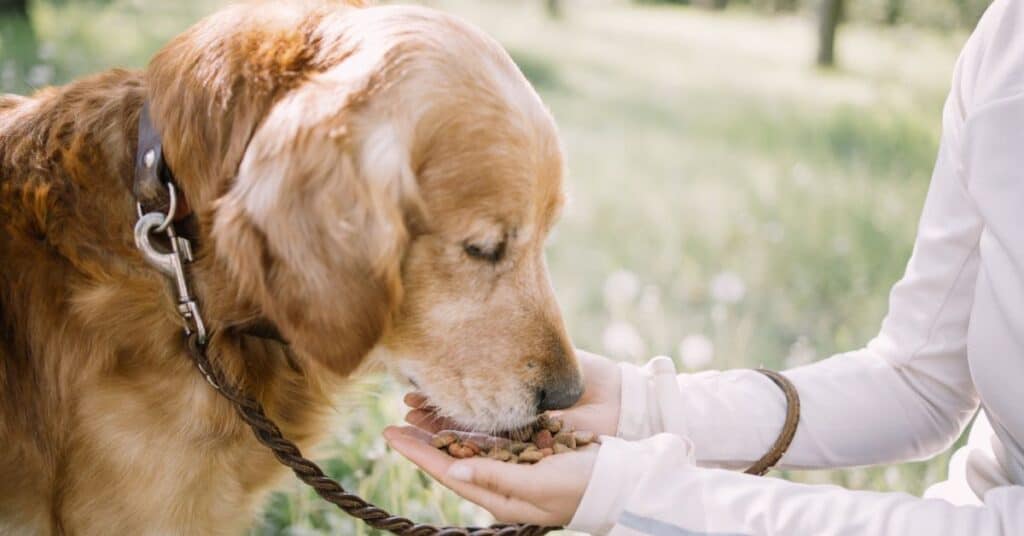
When It’s Time to Say Goodbye
At So Loved Pets, we understand the profound difficulty of saying farewell to your beloved pet. When it’s time, we’re here to support you with compassionate, personalized pet cremation services, ensuring your pet’s final journey honors the love you shared.
Gentle and Eco-Friendly Process
We use a gentle, water-based cremation that reduces environmental impact, a meaningful choice for families who want a respectful and eco-friendly farewell. This process, called aquamation, is both natural and eco-conscious, providing comfort in knowing your pet’s farewell is sustainable.
Personalized Care and Memorial Options
You can personalize your pet cremation to suit your family’s wishes, choosing from a variety of memorials and urns to keep their memory alive.
Our team handles every aspect, ensuring individual cremation so that your pet’s remains are returned solely to you. We offer keepsakes, beautiful and unique locally crafted urns, and options that reflect your pet’s unique spirit and the love they brought to your life.
Support During Difficult Times
Losing a pet is never easy, and you’re not alone on this journey. Our team is here to provide the guidance and empathy you need to make these decisions with peace of mind. We handle every detail respectfully so you can focus on honoring your pet’s legacy.
Contact So Loved Pets today to learn more about our pet cremation services or to begin planning. We’re here for you every step of the way.

